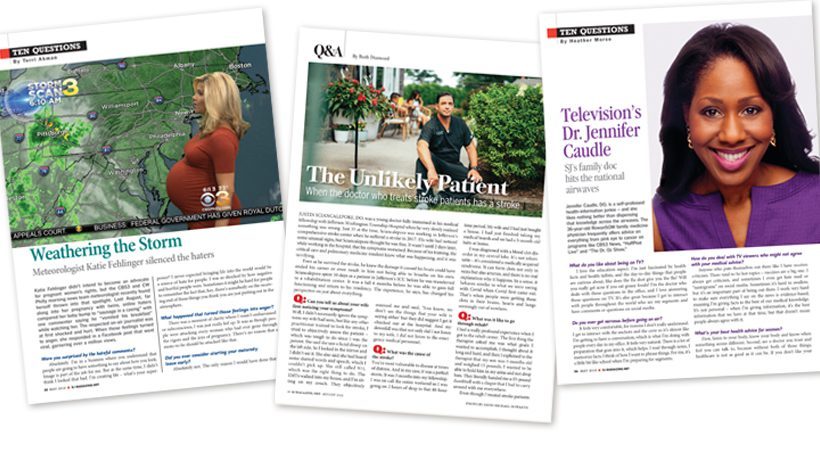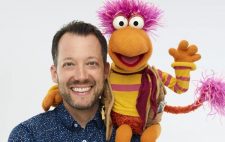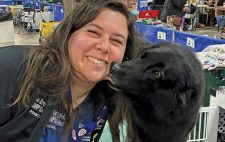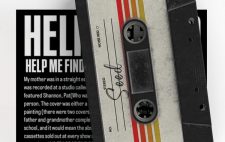For decades now, we’ve recognized a good Q&A when we saw it – or maybe we should say, we recognized the person who we knew would be perfect to ask a few questions. So we did. And in the process, we got answers that made us think, made us feel and sometimes made us laugh. Here are a few of our all-time favorite answers.
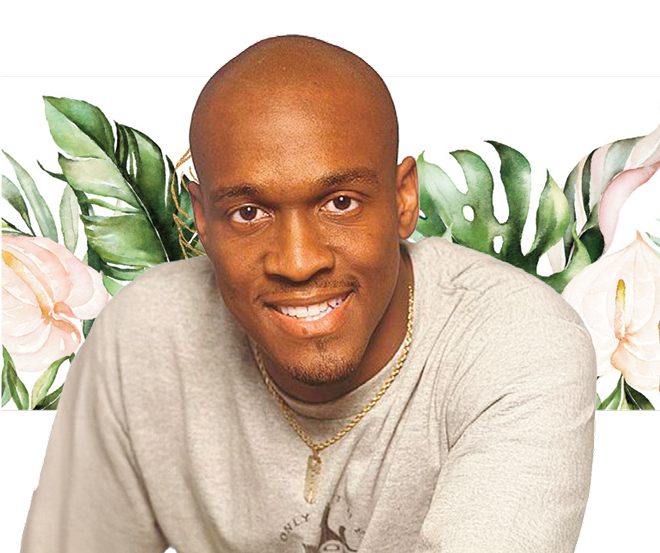 2002 – Gervase Peterson
2002 – Gervase Peterson
We spoke with the first-season Survivor cast member and it seems the term “reality TV” hadn’t been discovered yet.
Q: What do you think is the secret to surviving on these “real television” adventure shows?
A: Luck. It’s 99 percent luck to win these shows. You could prepare all you want, but once you get out there in the situation, you never know how things will affect you. The climate, the lack of food and sleep, etc. People try to train for these types of shows, but you never know. People get sick that you wouldn’t expect to, and people “crack” mentally you thought were stable.
For decades now, we’ve recognized a good Q&A when we saw it – or maybe we should say, we recognized the person who we knew would be perfect to ask a few questions. So we did. And in the process, we got answers that made us think, made us feel and sometimes made us laugh. Here are a few of our all-time favorite answers.
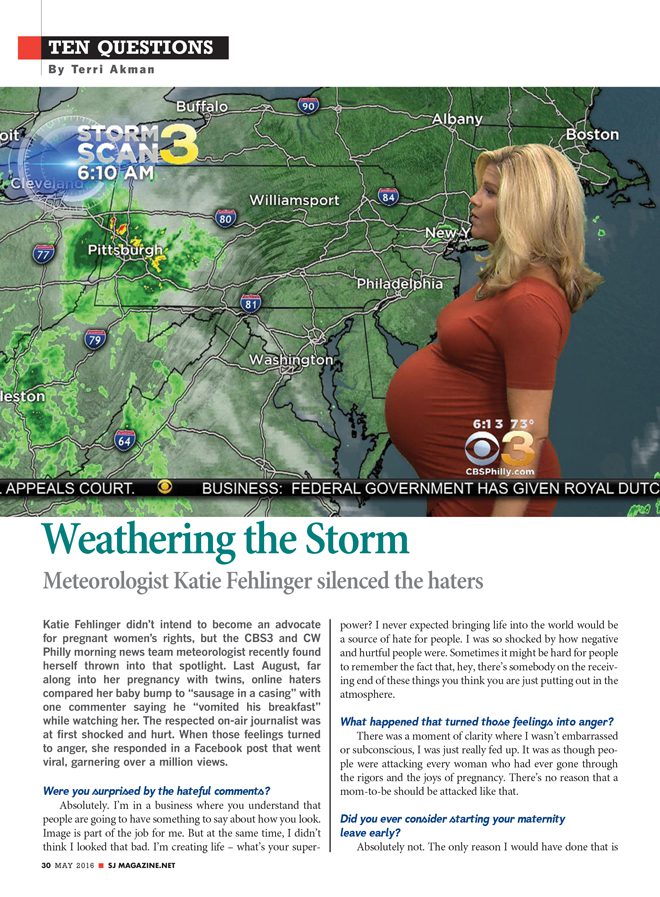 2016 – Weathering the Storm
2016 – Weathering the Storm
Meteorologist Katie Fehlinger silenced the haters while pregnant with twins in 2016.
Q: Were you surprised by the hateful comments?
A: Absolutely. I’m in a business where you understand that people are going to have something to say about how you look. Image is a part of the job for me. But at the same time, I didn’t think I looked that bad. I’m creating life – what’s your superpower? I never expected bringing life into the world would be a source of hate for people. I was so shocked by how negative and hurtful people were. Sometimes it might be hard for people to remember the fact that, hey, there’s somebody on the receiving end of these things you think you are just putting out in the atmosphere.
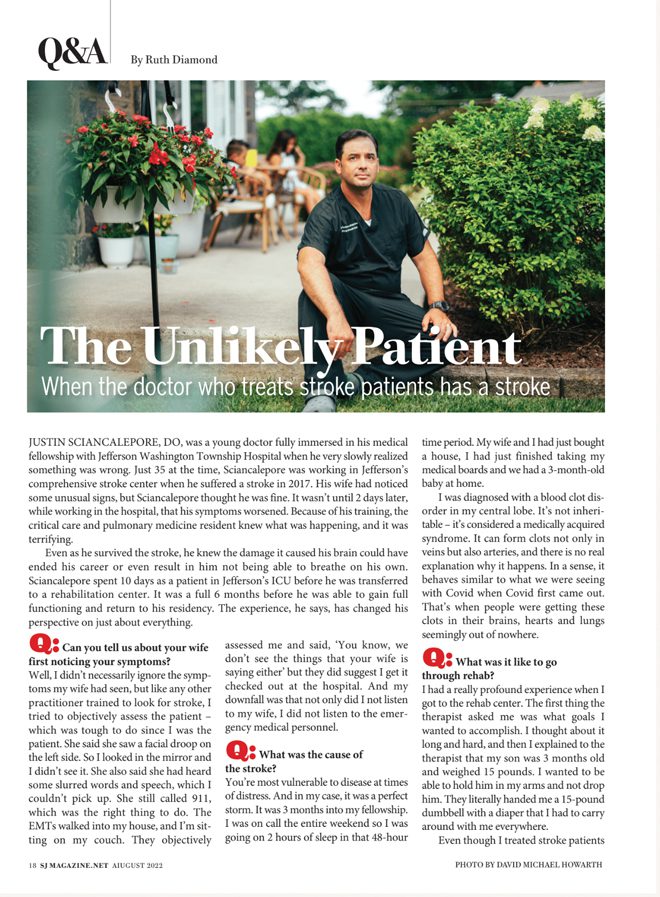 2022 – The Unlikely Patient
2022 – The Unlikely Patient
When he was 35 and participating in a medical fellowship at Jefferson’s comprehensive stroke center, Dr. Justin Sciancalepore suffered a stroke. He returned to his residency 6 months later and continues to practice medicine today.
Q: What was it like to go through rehab?
A: I had a really profound experience when I got to the rehab center. The first thing the therapist asked me was what goals I wanted to accomplish. I thought about it long and hard, and then I explained to the therapist that my son was 3 months old and weighed 15 pounds. I wanted to be able to hold him in my arms and not drop him. They literally handed me a 15-pound dumbbell with a diaper that I had to carry around with me everywhere.
Even though I treated stroke patients regularly, there was so much I didn’t realize about how patients relearn skills, and I had no idea what it was going to take for me to get back to being functional again. I went to rehabilitative driving school, which was fascinating. It’s like the driving lessons you get when you’re 16 or 17, except occupational specialists are timing your reactions. It was nerve-wracking going from being a very functional physician to somebody who needed other people to tell me I could drive a car again.
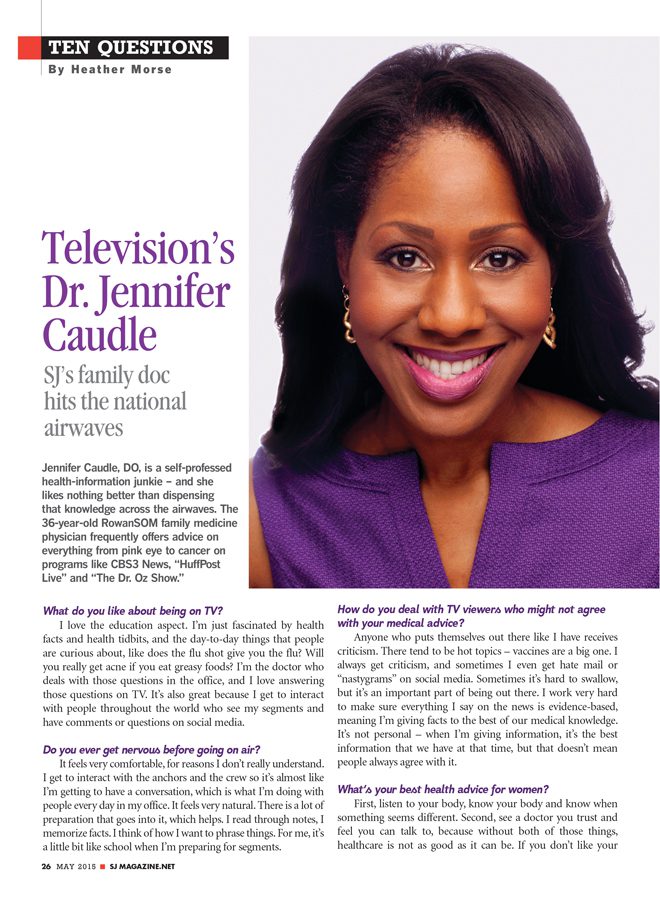 2015 – Television’s Dr. Jennifer Caudle
2015 – Television’s Dr. Jennifer Caudle
South Jersey’s family doc hit the national airwaves in 2015.
Q: How do you deal with TV viewers who might not agree with your medical advice?
A: Anyone who puts themselves out there like I have receives criticism. There tend to be hot topics – vaccines are a big one. I always get criticism, and sometimes I get hate mail or “nastygrams” on social media. Sometimes it’s hard to swallow, but it’s an important part of being out there. I work very hard to make sure everything I say on the news is evidence-based, meaning I’m giving facts to the best of our medical knowledge. It’s not personal – when I’m giving information, it’s the best information that we have at the time, but that doesn’t mean people always agree with it.
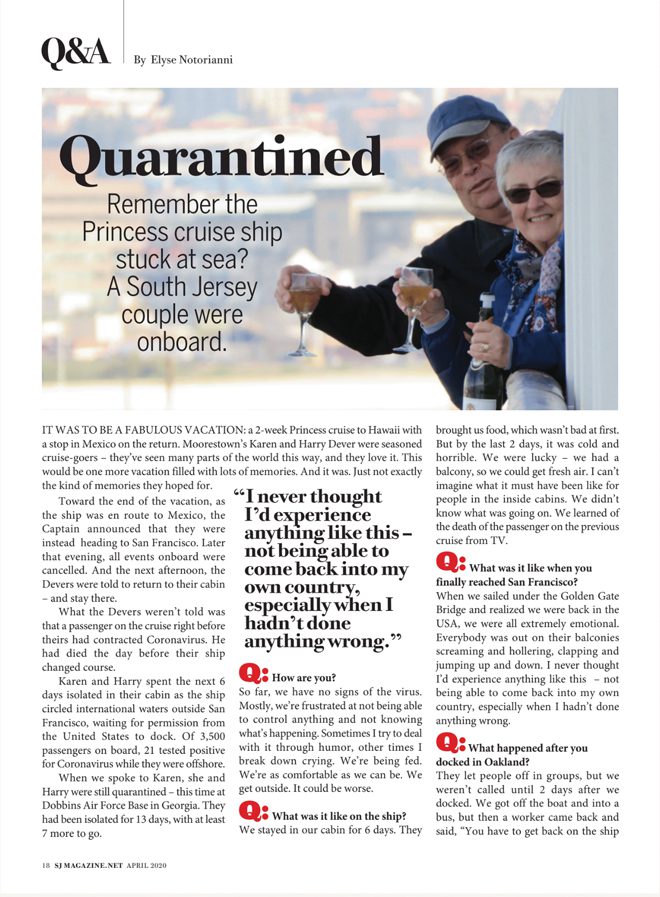 2020 – Quarantined
2020 – Quarantined
Early on during the pandemic, Karen and Harry Dever took a 2-week cruise to Mexico. They never reached their final destination, and instead lived through a Covid nightmare as they were quarantined on the ship and then at Dobbins Air Force Base in Georgia.
Q: What’s life like on the base?
A: We’re in a fenced-in compound with a triage type of setup in the center. There’s two-fifths of a mile concrete track that we can walk. We aren’t allowed to congregate, not that we have anywhere to congregate if we could. Anywhere the fencing is up against a public road, it’s covered in black netting so we can’t see out. We wear masks any time we leave the room. I know people are trying to do their best, but it’s hard.
We have a single room with a comfortable bed, a small refrigerator, a desk and an upholstered chair. There’s a second upholstered chair at the end of the hall outside our room, and I’m considering stealing it. We have teleconferences with the Health and Human Services workers at the base to keep us informed, but even when we’re able to ask questions, most of the time they don’t have answers.
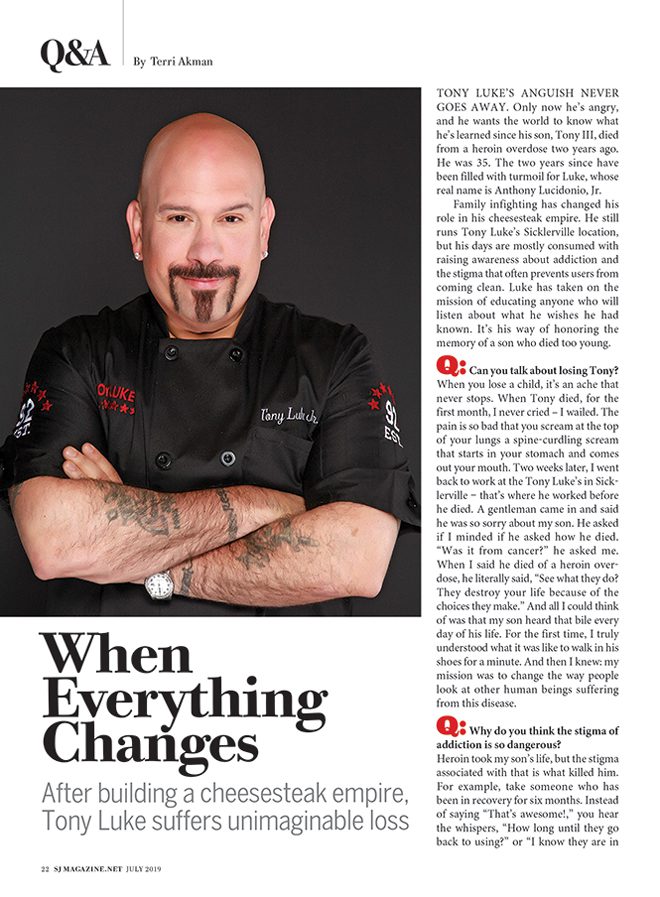 2019 – When Everything Changes
2019 – When Everything Changes
After building a cheesesteak empire, Tony Luke talked about his unimaginable loss.
Q: Can you talk about losing Tony?
A: When you lose a child, it’s an ache that never stops. When Tony died, for the first month, I never cried – I wailed. The pain is so bad that you scream at the top of your lungs a spine-curdling scream that starts in your stomach and comes out your mouth. Two weeks later, I went back to work at the Tony Luke’s in Sicklerville – that’s where he worked before he died. A gentleman came in and said he was so sorry about my son. He asked if I minded if he asked how he died. “Was it cancer?” he asked me. When I said he died of a heroin overdose, he literally said, “See what they do? They destroy your life because of the choices they make.” And all I could think of was that my son heard that bile every day of his life. For the first time, I truly understood what it was like to walk in his shoes for a minute. And then I knew: my mission was to change the way people look at other human beings suffering from the disease.
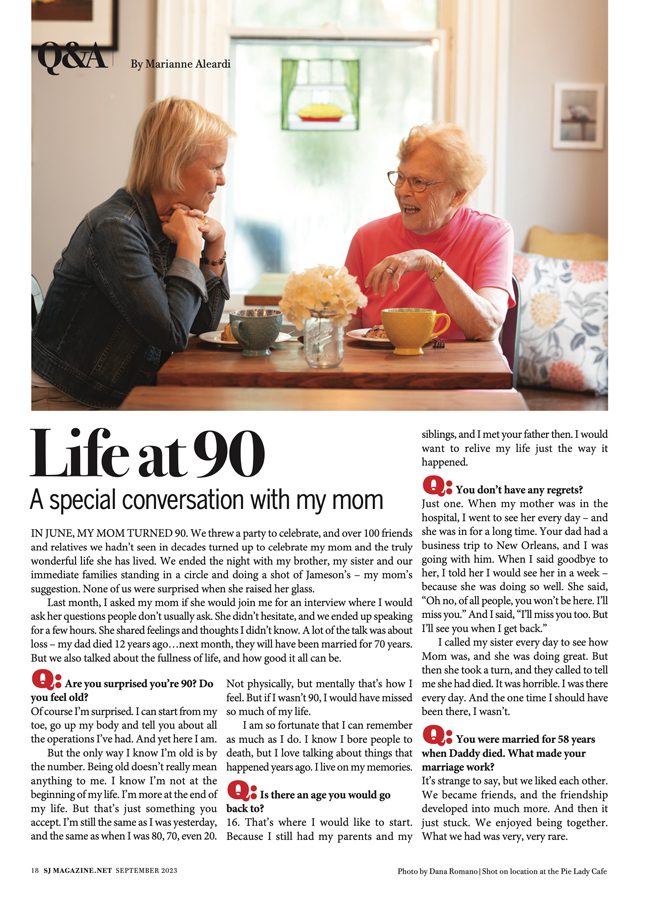 2023 – Life at 90
2023 – Life at 90
SJ Mag’s Marianne Aleardi had a very personal conversation with her mom, who had just turned 90.
Q: What’s it like to see so many of your friends die?
A: Without personal relationships, you have nothing. And trust me, I know, because most of them are gone. And that’s been hard. Those people who, for years, I would call and say, “What’s happening today?” – they’re all gone. I miss them terribly.
I’m fortunate because I have new friends who always want to do things, even if it’s just going to lunch. But I always have the television or radio on, always. That makes me feel like somebody is there. I guess the loneliness is just something you get used to. It’s not easy though.
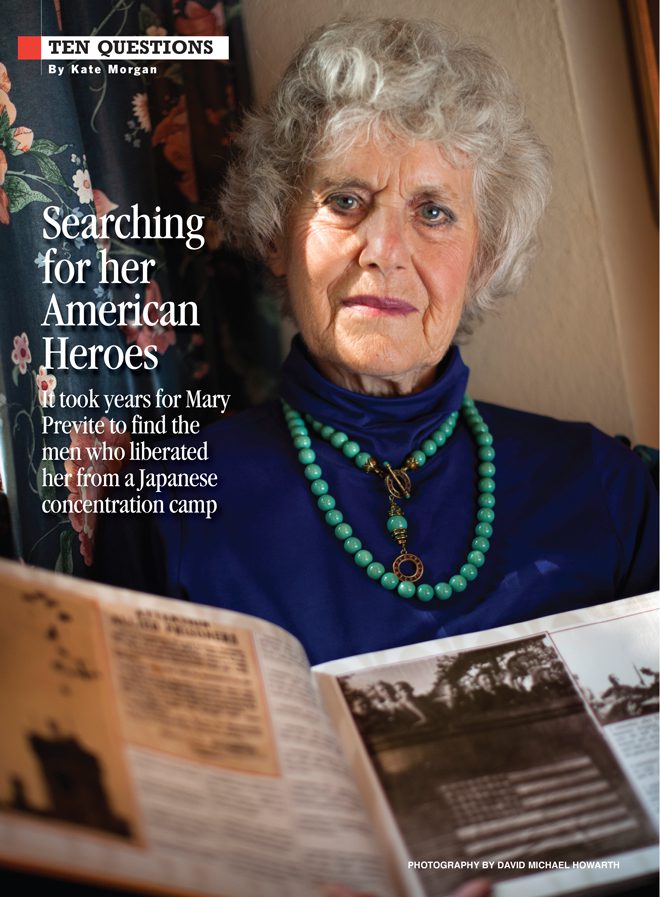 2015 – Searching for her American Heroes
2015 – Searching for her American Heroes
The late Mary Previte spent years looking for the men who liberated her from a Japanese concentration camp.
Q: What were the conditions like inside the camp?
I lived a miracle in the Weihsien Concentration Camp. We were part of a war and I was only a child, but I honestly only remember one time being afraid. My teachers made sure we got to remain children. They started a Brownie troop, and we learned everything Brownies learn. I can still set a sprained ankle and tie all kinds of knots. The teacher said, “School will go on. We will win this war, and when we do, you will compete with boys and girls who have been going to school all this time, and so school will go on.”
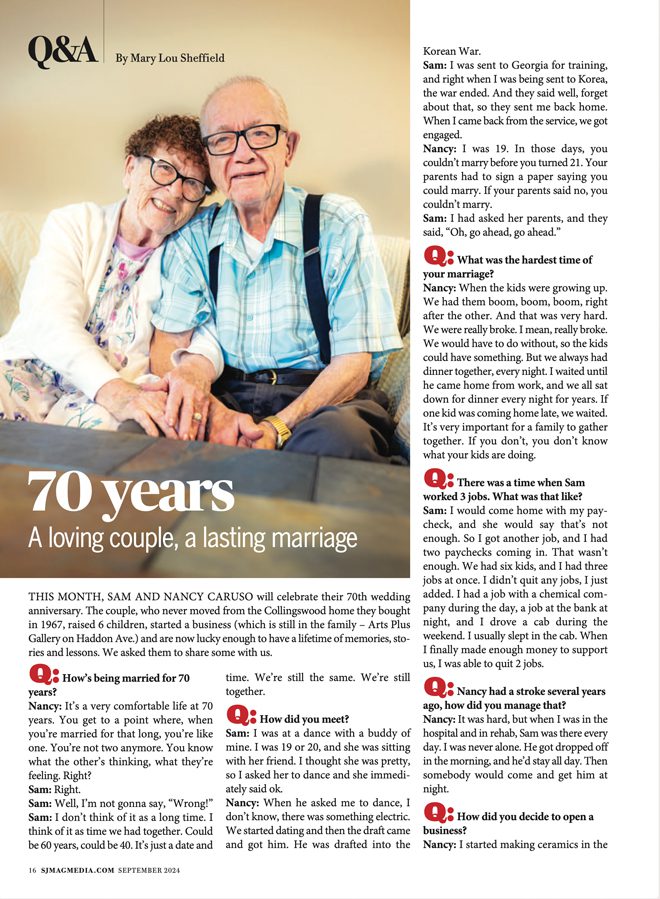 2024 – 70 years
2024 – 70 years
Nancy and Sam Caruso had just celebrated their 70th wedding anniversary.
Q: Your advice for couples thinking about getting married?
Sam: If you’re having bad times before you’re married, don’t get married. Take your time. If you’re not getting along now, forget about it. That’s not your person.
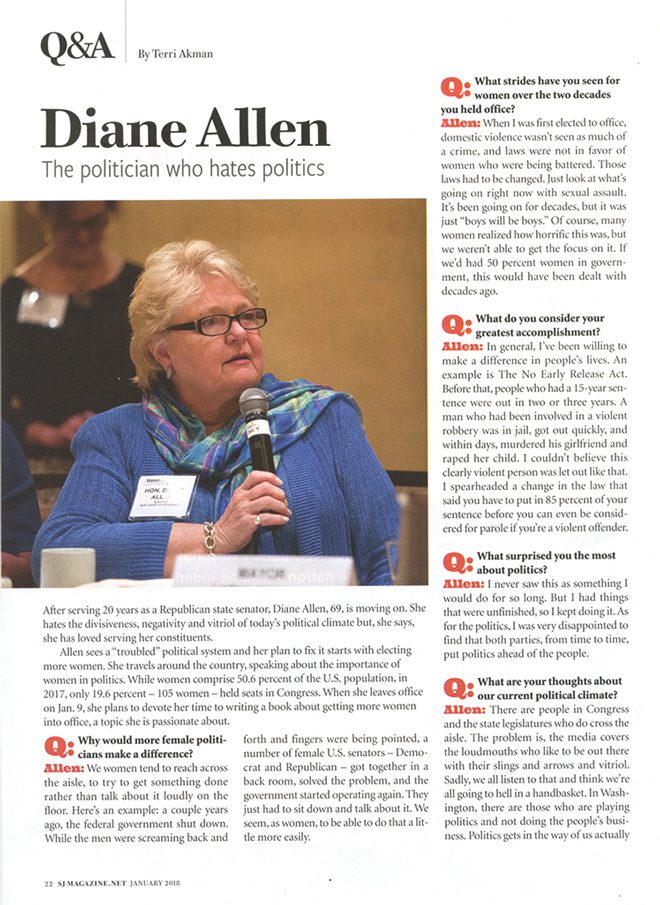 2018 – The politician who hates politics
2018 – The politician who hates politics
Former State Senator Diane Allen spoke with us after leaving her 20-year career as a state senator.
Q: What strides have you seen for women over the two decades you held office?
When I was first elected to office, domestic violence wasn’t seen as much of a crime, and laws were not in favor of women who were being battered. Those laws had to be changed. Just look at what’s going on right now with sexual assault. It’s been going on for decades, but it was just “boys will be boys.” Of course, many women realized how horrific this was, but we weren’t able to get the focus on it. If we’d had 50 percent women in government, this would have been dealt with decades ago.


